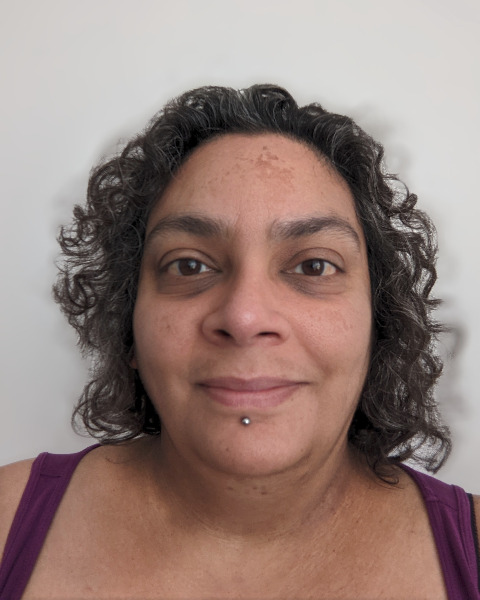Back
Feminist Scholarship
Are You My “REAL” Family: Disrupting the Dominant Adoption Discourse
Saturday, November 12, 2022
10:45 AM – 11:45 AM
Location: Catalina 3
Earn 1 CE

Jennifer Muthanna, HBSW, MSW, PhD (Candidate)
PhD Candidate
Portland State University
London, England, United Kingdom- SL
Sandra Leotti, MSW, PhD
Assistant Professor
University of Wyoming
Laramie, Wyoming, United States
Main Presenter(s)
Co-Presenter(s)
Overview: In this workshop, the presenters will invite participants into a critical conversation regarding social work’s engagement with adoption. We will explore dominantly held views that appear in social work practice and present adoption appropriate language, in order to shift to a more open and inclusive discourse around adoption.Proposal text: Exact numbers of those who are “touched” by adoption (i.e., are adopted, know someone who is adopted, have adopted, or have lost a child to adoption) are unknown (Koh, Kim, & McRoy, 2017). The Child Welfare Information Gateway (2016) puts the total number of adoptions (including public, international, and “other” adoptions) in 2012 at 119,514 and Harris Poll (2017) estimated 1 in 10 adults were adopted as children. Strong-Boag (2006) cites an Ipsos-Reid poll that found “three in five Canadians knew someone who was adopted, two in nine had a personal adoption experience, and one in seven knew someone who had placed a child for adoption” (p. vii). The sheer prevalence of those impacted by adoption means that many professionals will work with members of the adoption constellation, whatever their area of practice. Despite this likelihood, explicit adoption and post-adoption content is almost absent from social work and allied curricula (Park-Taylor & Wing, 2020; Weir, Fife, Whiting, & Blazewick, 2008). How are social workers framing their construction of adoption? What is informing their knowledge about adoption's substantive issues? Phelan (2018) and Wegar (2000) contend most people develop their understanding of adoption through portrayals in literature and media. This workshop explores how a feminist analysis of the adoption discourse can contribute to social work’s understanding of and interventions with members of the adoption constellation. Specifically, this workshop seeks to expose and disrupt dominantly held views that are implicit in the construction of birth parents, adopters, and adoptees.
We begin by introducing grief and loss as the substantive issues in adoption. An open discussion encourages attendees to share their views about the underlying feelings/views that are perpetuated through dominant adoption discourse and “microfictions” (Baden, 2016). For example, birth mothers often are constructed as sexually or morally “loose” (Balcom, 2006; Fessler, 2007); birth fathers as sexually or emotionally irresponsible; adopters as altruistic (Cuthbert, Murphy, & Quartly, 2009; Dubinsky, 2010); and adoptees as pathological (Janus, 1997; Ormond, 2018) and as perpetual infants whose value is dependent upon who claims “ownership” of them (Andrews, 2018). To further illustrate the pervasive nature of these views, we will share media representations of adoption that reify overly simplistic views and beliefs about adoption and adoption constellation members. We will encourage attendees to explore these discursive practices through a feminist lens and then facilitate a discussion on how these implicit views are perpetuated in social work practice and education. We will encourage participants to consider ways in which we can begin to disrupt these constructions. Finally, in lecture format, we will walk participants through the use of adoption appropriate language and discuss how using more inclusive language can enhance work practice and better support all members of the adoption constellation. We also will offer our reflections on how including adoption-specific content has impacted our students. This session will be highly interactive and draw on the experience and knowledge of participants in order to build a concrete vision engaging with adoption in a manner that promotes diversity, equity, and inclusion.
We begin by introducing grief and loss as the substantive issues in adoption. An open discussion encourages attendees to share their views about the underlying feelings/views that are perpetuated through dominant adoption discourse and “microfictions” (Baden, 2016). For example, birth mothers often are constructed as sexually or morally “loose” (Balcom, 2006; Fessler, 2007); birth fathers as sexually or emotionally irresponsible; adopters as altruistic (Cuthbert, Murphy, & Quartly, 2009; Dubinsky, 2010); and adoptees as pathological (Janus, 1997; Ormond, 2018) and as perpetual infants whose value is dependent upon who claims “ownership” of them (Andrews, 2018). To further illustrate the pervasive nature of these views, we will share media representations of adoption that reify overly simplistic views and beliefs about adoption and adoption constellation members. We will encourage attendees to explore these discursive practices through a feminist lens and then facilitate a discussion on how these implicit views are perpetuated in social work practice and education. We will encourage participants to consider ways in which we can begin to disrupt these constructions. Finally, in lecture format, we will walk participants through the use of adoption appropriate language and discuss how using more inclusive language can enhance work practice and better support all members of the adoption constellation. We also will offer our reflections on how including adoption-specific content has impacted our students. This session will be highly interactive and draw on the experience and knowledge of participants in order to build a concrete vision engaging with adoption in a manner that promotes diversity, equity, and inclusion.
Learning Objectives:
- Identify implicit views that are embedded in the dominant discourse on adoption.
- Articulate the need to integrate adoption appropriate language into social work education, research, and practice.
- Envision possibilities for transforming social work practice to include a more robust and social justice-oriented understanding of adoption.
